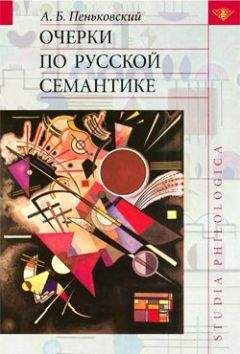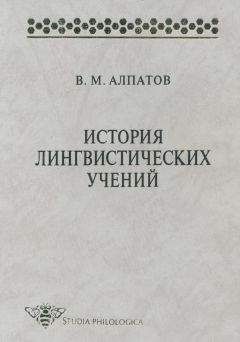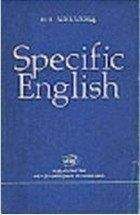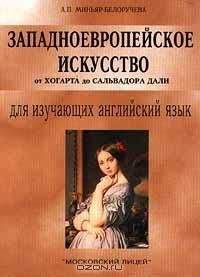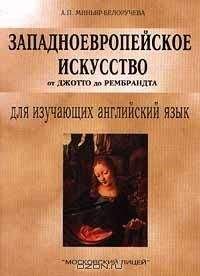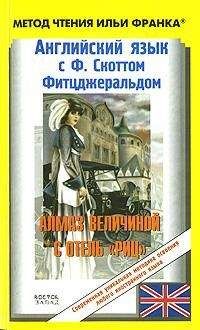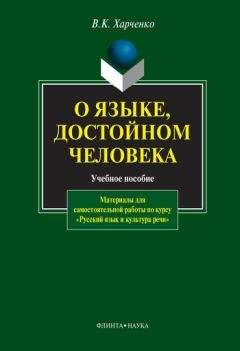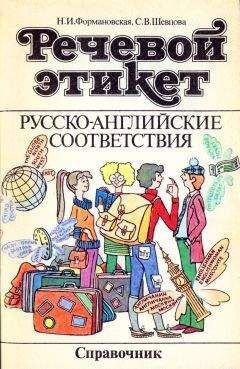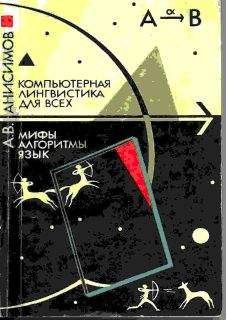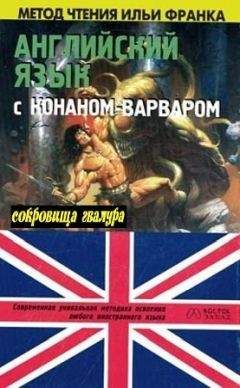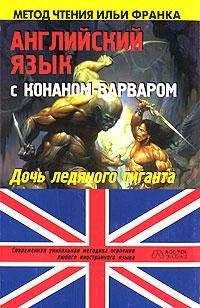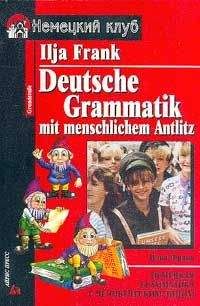Клайв Льюис - "Племянник чародея" with W_cat
Все авторские права соблюдены. Напишите нам, если Вы не согласны.
Описание книги ""Племянник чародея" with W_cat"
Описание и краткое содержание ""Племянник чародея" with W_cat" читать бесплатно онлайн.
Вниманию читателей предлагается книга Клайва Льюиса «Племянник чародея».
Каждый абзац текста, на английском языке, снабжен ссылкой на литературный перевод.
Книга предназначена для учащихся старший классов школ, лицеев и гимназий, а также для широкого круга лиц, интересующихся английской литературой и совершенствующих свою языковую подготовку.
[264] Make your choice, adventurous Stranger;
Strike the bell and bide the danger,
Or wonder, till it drives you mad,
What would have followed if you had.
[265] “No fear!” said Polly. “We don’t want any danger.”
[266] “Oh but don’t you see it’s no good!” said Digory. “We can’t get out of it now. We shall always be wondering what else would have happened if we had struck the bell. I’m not going home to be driven mad by always thinking of that. No fear!”
[267] “Don’t be so silly,” said Polly. “As if anyone would! What does it matter what would have happened?”
[268] “I expect anyone who’s come as far as this is bound to go on wondering till it sends him dotty. That’s the Magic of it, you see. I can feel it beginning to work on me already.”
[269] “Well I don’t,” said Polly crossly. “And I don’t believe you do either. You’re just putting it on.”
[270] “That’s all you know,” said Digory. “It’s because you’re a girl. Girls never want to know anything but gossip and rot about people getting engaged.”
[271] “You looked exactly like your Uncle when you said that,” said Polly.
[272] “Why can’t you keep to the point?” said Digory. “What we’re talking about is—”
[273] “How exactly like a man!” said Polly in a very grownup voice; but she added hastily, in her real voice, “And don’t say I’m just like a woman, or you’ll be a beastly copy-cat.”
[274] “I should never dream of calling a kid like you a woman,” said Digory loftily.
[275] “Oh, I’m a kid, am I?” said Polly who was now in a real rage. “Well you needn’t be bothered by having a kid with you any longer then. I’m off. I’ve had enough of this place. And I’ve had enough of you too—you beastly, stuck-up, obstinate pig!”
[276] “None of that!” said Digory in a voice even nastier than he meant it to be; for he saw Polly’s hand moving to her pocket to get hold of her yellow ring. I can’t excuse what he did next except by saying that he was very sorry for it afterwards (and so were a good many other people). Before Polly’s hand reached her pocket, he grabbed her wrist, leaning across with his back against her chest. Then, keeping her other arm out of the way with his other elbow, he leaned forward, picked up the hammer, and struck the golden bell a light, smart tap. Then he let her go and they fell apart staring at each other and breathing hard. Polly was just beginning to cry, not with fear, and not even because he had hurt her wrist quite badly, but with furious anger. Within two seconds, however, they had something to think about that drove their own quarrels quite out of their minds.
[277] As soon as the bell was struck it gave out a note, a sweet note such as you might have expected, and not very loud. But instead of dying away again, it went on; and as it went on it grew louder. Before a minute had passed it was twice as loud as it had been to begin with. It was soon so loud that if the children had tried to speak (but they weren’t thinking of speaking now—they were just standing with their mouths open) they would not have heard one another. Very soon it was so loud that they could not have heard one another even by shouting. And still it grew: all on one note, a continuous sweet sound, though the sweetness had something horrible about it, till all the air in that great room was throbbing with it and they could feel the stone floor trembling under their feet. Then at last it began to be mixed with another sound, a vague, disastrous noise which sounded first like the roar of a distant train, and then like the crash of a falling tree. They heard something like great weights falling. Finally, with a sudden, rush and thunder, and a shake that nearly flung them off their feet, about a quarter of the roof at one end of the room fell in, great blocks of masonry fell all round them, and the walls rocked. The noise of the bell stopped. The clouds of dust cleared away. Everything became quiet again.
It was never found out whether the fall of the roof was due to Magic or whether that unbearably loud sound from the bell just happened to strike the note which was more than those crumbling walls could stand.
[278] “There! I hope you’re satisfied now,” panted Polly.
[279] “Well, it’s all over, anyway,” said Digory.
[280] And both thought it was; but they had never been more mistaken in their lives.
[281] CHAPTER FIVE.
THE DEPLORABLE WORD
[282] THE children were facing one another across the pillar where the bell hung, still trembling, though it no longer gave out any note. Suddenly they heard a soft noise from the end of the room which was still undamaged. They turned quick as lightning to see what it was. One of the robed figures, the furthest-off one of all, the woman whom Digory thought so beautiful, was rising from its chair. When she stood up they realized that she was even taller than they had thought. And you could see at once, not only from her crown and robes, but from the flash of her eyes and the curve of her lips, that she was a great queen. She looked round the room and saw the damage and saw the children, but you could not guess from her face what she thought of either or whether she was surprised. She came forward with long, swift strides.
[283] “Who has awaked me? Who has broken the spell?” she asked.
[284] “I think it must have been me,” said Digory.
[285] “You!” said the Queen, laying her hand on his shoulder—a white, beautiful hand, but Digory could feel that it was strong as steel pincers. “You? But you are only a child, a common child. Anyone can see at a glance that you have no drop of royal or noble blood in your veins. How did such as you dare to enter this house?”
[286] “We’ve come from another world; by Magic,” said Polly, who thought it was high time the Queen took some notice of her as well as of Digory.
[287] “Is this true?” said the Queen, still looking at Digory and not giving Polly even a glance.
[288] “Yes, it is,” said he.
[289] The Queen put her other hand under his chin and forced it up so that she could see his face better. Digory tried to stare back but he soon had to let his eyes drop. There was something about hers that overpowered him.
After she had studied him for well over a minute, she let go of his chin and said:
[290] “You are no magician. The mark of it is not on you. You must be only the servant of a magician. It is on another’s Magic that you have travelled here.”
[291] “It was my Uncle Andrew,” said Digory.
[292] At the moment, not in the room itself but from somewhere very close, there came, first a rumbling, then a creaking, and then a roar of falling masonry, and the floor shook.
[293] “There is great peril here,” said the Queen. “The whole palace is breaking up. If we are not out of it in a few minutes we shall be buried under the ruin.” She spoke as calmly as if she had been merely mentioning the time of day. “Come,” she added, and held out a hand to each of the children. Polly, who was disliking the Queen and feeling rather sulky, would not have let her hand be taken if she could have helped it. But though the Queen spoke so calmly, her movements were as quick as thought. Before Polly knew what was happening her left hand had been caught in a hand so much larger and stronger than her own that she could do nothing about it.
[294] “This is a terrible woman,” thought Polly. “She’s strong enough to break my arm with one twist. And now that she’s got my left hand I can’t get at my yellow ring. If I tried to stretch across and get my right hand into my left pocket I mightn’t be able to reach it, before she asked me what I was doing. Whatever happens we mustn’t let her know about the rings. I do hope Digory has the sense to keep his mouth shut. I wish I could get a word with him alone.”
[295] The Queen led them out of the Hall of Images into a long corridor and then through a whole maze of halls and stairs and courtyards. Again and again they heard parts of the great palace collapsing, sometimes quite close to them. Once a huge arch came thundering down only a moment after they had passed through it. The Queen was walking quickly—the children had to trot to keep up with her but she showed no sign of fear. Digory thought, “She’s wonderfully brave. And strong. She’s what I call a Queen! I do hope she’s going to tell us the story of this place.”
[296] She did tell them certain things as they went along:
[297] “That is the door to the dungeons,” she would say, or “That passage leads to the principal torture chambers,” or “This was the old banqueting hall where my greatgrandfather bade seven hundred nobles to a feast and killed them all before they had drunk their fill. They had had rebellious thoughts.”
[298] They came at last into a hall larger and loftier than any they had yet seen. From its size and from the great doors at the far end, Digory thought that now at last they must be coming to the main entrance. In this he was quite right. The doors were dead black, either ebony or some black metal which is not found in our world. They were fastened with great bars, most of them too high to reach and all too heavy to lift. He wondered how they would get out.
[299] The Queen let go of his hand and raised her arm. She drew herself up to her full height and stood rigid. Then she said something which they couldn’t understand (but it sounded horrid) and made an action as if she were throwing something towards the doors. And those high and heavy doors trembled for a second as if they were made of silk and then crumbled away till there was nothing left of them but a heap of dust on the threshold.
[300] “Whew!” whistled Digory.
[301] “Has your master magician, your uncle, power like mine?” asked the Queen, firmly seizing Digory’s hand again. “But I shall know later. In the meantime, remember what you have seen. This is what happens to things, and to people, who stand in my way.”
[302] Much more light than they had yet seen in that country was pouring in through the now empty doorway, and when the Queen led them out through it they were not surprised to find themselves in the open air. The wind that blew in their faces was cold, yet somehow stale. They were looking from a high terrace and there was a great landscape out below them.
[303] Low down and near the horizon hung a great, red sun, far bigger than our sun. Digory felt at once that it was also older than ours: a sun near the end of its life, weary of looking down upon that world. To the left of the sun, and higher up, there was a single star, big and bright. Those were the only two things to be seen in the dark sky; they made a dismal group. And on the earth, in every direction, as far as the eye could reach, there spread a vast city in which there was no living thing to be seen. And all the temples, towers, palaces, pyramids, and bridges cast long, disastrous-looking shadows in the light of that withered sun. Once a great river had flowed through the city, but the water had long since vanished, and it was now only a wide ditch of grey dust.
[304] “Look well on that which no eyes will ever see again,” said the Queen. “Such was Charn, that great city, the city of the King of Kings, the wonder of the world, perhaps of all worlds. Does your uncle rule any city as great as this, boy?”
[305] “No,” said Digory. He was going to explain that Uncle Andrew didn’t rule any cities, but the Queen went on:
[306] “It is silent now. But I have stood here when the whole air was full of the noises of Charn; the trampling of feet, the creaking of wheels, the cracking of the whips and the groaning of slaves, the thunder of chariots, and the sacrificial drums beating in the temples. I have stood here (but that was near the end) when the roar of battle went up from every street and the river of Charn ran red.” She paused and added, “All in one moment one woman blotted it out for ever.”
[307] “Who?” said Digory in a faint voice; but he had already guessed the answer.
[308] “I,” said the Queen. “I, Jadis the last Queen, but the Queen of the World.”
[309] The two children stood silent, shivering in the cold wind.
[310] “It was my sister’s fault,” said the Queen. “She drove me to it. May the curse of all the Powers rest upon her forever! At any moment I was ready to make peace—yes and to spare her life too, if only she would yield me the throne. But she would not. Her pride has destroyed the whole world. Even after the war had begun, there was a solemn promise that neither side would use Magic. But when she broke her promise, what could I do? Fool! As if she did not know that I had more Magic than she! She even knew that I had the secret of the Deplorable Word. Did she think—she was always a weakling—that I would not use it?”
[311] “What was it?” said Digory.
[312] “That was the secret of secrets,” said the Queen Jadis. “It had long been known to the great kings of our race that there was a word which, if spoken with the proper ceremonies, would destroy all living things except the one who spoke it. But the ancient kings were weak and softhearted and bound themselves and all who should come after them with great oaths never even to seek after the knowledge of that word. But I learned it in a secret place and paid a terrible price to learn it. I did not use it until she forced me to it. I fought to overcome her by every other means. I poured out the blood of my armies like water—”
[313] “Beast!” muttered Polly.
[314] “The last great battle,” said the Queen, “raged for three days here in Charn itself. For three days I looked down upon it from this very spot. I did not use my power till the last of my soldiers had fallen, and the accursed woman, my sister, at the head of her rebels was halfway up those great stairs that lead up from the city to the terrace. Then I waited till we were so close that we could see one another’s faces. She flashed her horrible, wicked eyes upon me and said, “Victory.” “Yes,” said I, “Victory, but not yours.” Then I spoke the Deplorable Word. A moment later I was the only living thing beneath the sun.”,
[315] “But the people?” gasped Digory.
[316] “What people, boy?” asked the Queen.
[317] “All the ordinary people,” said Polly, “who’d never done you any harm. And the women, and the children, and the animals.”
[318] “Don’t you understand?” said the Queen (still speaking to Digory). “I was the Queen. They were all my people. What else were they there for but to do my will?”
[319] “It was rather hard luck on them, all the same,” said he.
[320] “I had forgotten that you are only a common boy. How should you understand reasons of State? You must learn, child, that what would be wrong for you or for any of the common people is not wrong in a great Queen such as I. The weight of the world is on our shoulders. We must be freed from all rules. Ours is a high and lonely destiny.”
[321] Digory suddenly remembered that Uncle Andrew had used exactly the same words. But they sounded much grander when Queen Jadis said them; perhaps because Uncle Andrew was not seven feet tall and dazzlingly beautiful.
[322] “And what did you do then?” said Digory.
[323] “I had already cast strong spells on the hall where the images of my ancestors sit. And the force of those spells was that I should sleep among them, like an image myself, and need neither food nor fire, though it were a thousand years, till one came and struck the bell and awoke me.”
Подписывайтесь на наши страницы в социальных сетях.
Будьте в курсе последних книжных новинок, комментируйте, обсуждайте. Мы ждём Вас!
Похожие книги на ""Племянник чародея" with W_cat"
Книги похожие на ""Племянник чародея" with W_cat" читать онлайн или скачать бесплатно полные версии.
Мы рекомендуем Вам зарегистрироваться либо войти на сайт под своим именем.
Отзывы о "Клайв Льюис - "Племянник чародея" with W_cat"
Отзывы читателей о книге ""Племянник чародея" with W_cat", комментарии и мнения людей о произведении.






